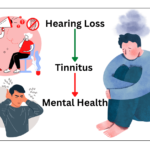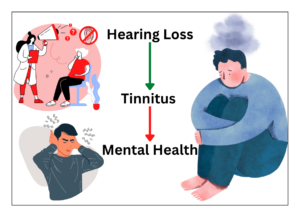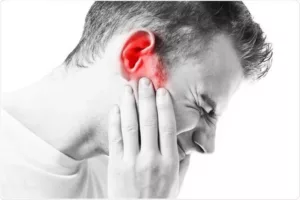
There is currently no known cure for hyperacusis, which is a condition in which sounds that are normally tolerable or even unnoticeable to most people are perceived as intolerably loud or painful by an individual with hyperacusis. However, there are several treatment options available that may help improve symptoms of hyperacusis and reduce the negative impact of the condition on a person’s quality of life.
Treatment for hyperacusis may include a combination of the following approaches:
-
Sound therapy: This may involve listening to specially designed sounds or music to help retrain the brain to tolerate a wider range of sounds.
-
Counseling and therapy: This may include cognitive behavioral therapy or other forms of therapy to help a person cope with the emotional and psychological impact of hyperacusis.
-
Medications: Some medications, such as tricyclic antidepressants or benzodiazepines, may be helpful in reducing hyperacusis symptoms.
-
Hearing aids: In some cases, hearing aids may be helpful in reducing hyperacusis symptoms by amplifying sounds and making them more tolerable.
-
Tinnitus retraining therapy: This treatment approach may be helpful for individuals with both tinnitus and hyperacusis, as it involves a combination of counseling and sound therapy to help a person cope with their symptoms and improve their quality of life.
It is important to note that treatment for hyperacusis can be a slow and gradual process, and it may take time to see improvement. It is also important to work with a healthcare professional experienced in treating hyperacusis to determine the most appropriate treatment approach.
In summary, while there is currently no known cure for hyperacusis, there are several treatment options available that may help improve symptoms and reduce the negative impact of the condition on a person’s quality of life. It is important to work with a healthcare professional to determine the most appropriate treatment approach.
References:
· Baguley, D. M., McFerran, D. J., & Hall, D. A. (2014). Prevalence of tinnitus and the relationship between tinnitus and hyperacusis. Audiology & Neurotology, 19(4), 259-269.
· Langguth, B., Goodey, R., Azevedo, A., Dohrmann, K., Elgoyhen, A. B., Hansen, M. R., … & Zimmermann, T. (2011). Consensus for tinnitus patient assessment and treatment outcome measurement: Tinnitus Research Initiative meeting, Regensburg, July 2006. Progress in Brain Research, 189, 403-417.
· Salvi, R., & Brewer, C. (2002). Hyperacusis. The Lancet, 360(9340), 1117-1118.
· Shargorodsky, J., Curhan, S. G., & Curhan, G. C. (2010). Prevalence and characteristics of tinnitus among US adults. American Journal of Medicine, 123(3), 183-189.
· Smith, S. J., & Shekhawat, G. S. (2011). Hyperacusis. Otolaryngologic Clinics of North America, 44(3), 457-465.






